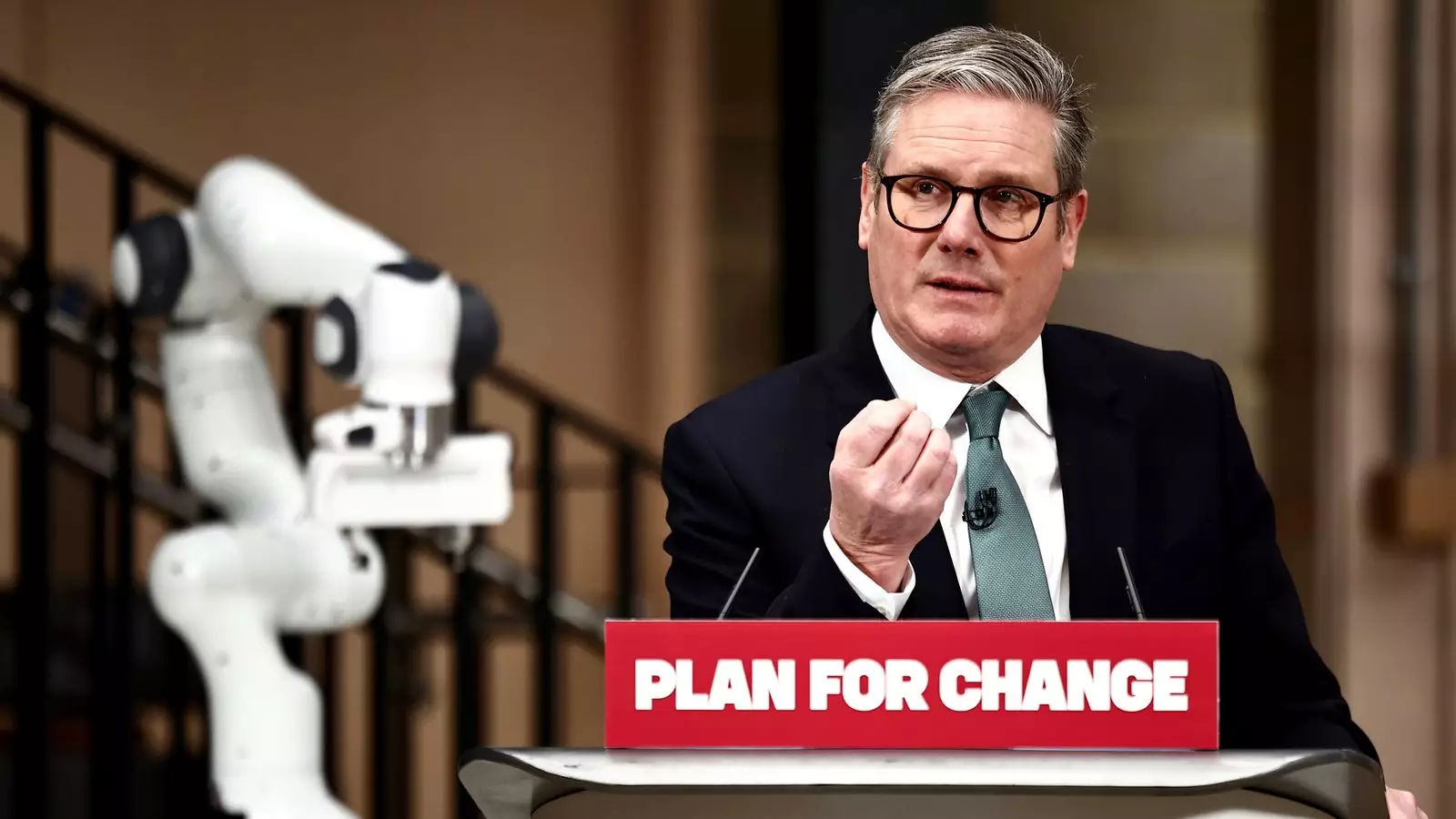In the backdrop of persistent market turbulence, Sir Keir Starmer, the leader of the Labour Party and a crucial figure in British politics, has emphasized the government’s unwavering commitment to economic growth. His remarks in response to Sky News highlight the government’s dual focus: an immediate response to current financial pressures and a long-term vision for economic stability. As international markets react to domestic challenges, Starmer contends that strategic cuts to government spending are necessary to navigate the financial storm ahead.
On Monday morning, the economic indicators painted a grim picture. The yields on both long-term and 10-year government bonds soared to alarming heights, signaling a rise in borrowing costs that could spark additional economic strain. The 30-year gilt yield reached 5.47%, a level last seen in 1998, while the 10-year yield, at 4.86%, bordered on levels reminiscent of the 2008 financial crisis. This alarming trend raises critical questions about the sustainability of government spending, potentially pressuring Chancellor Rachel Reeves to reassess her fiscal targets amidst a challenging economic backdrop.
Starmer’s declaration that the Treasury will be “ruthless” in implementing spending cuts reveals a significant policy direction. He stressed the importance of adhering to established fiscal rules to ensure the economy remains on a path toward recovery. By laying out a plan requiring governmental departments to identify efficiency savings of at least 5%, the Labour leadership seeks to ensure that the broader fiscal strategies align with measures of economic prudence and responsibility.
Moreover, Starmer’s insistence on maintaining these fiscal rules hints at fostering a sense of stability and predictability — factors that are vital in encouraging public trust and investor confidence amid a volatile market. However, this approach raises concerns regarding the impact such cuts might have on public services and the welfare of the most vulnerable populations in society. A delicate balance must be struck between maintaining fiscal discipline and providing necessary support to those suffering from the repercussions of economic policy decisions.
The repercussions of the precarious economic situation extend beyond government finances and directly impact ordinary citizens, particularly in the housing market. With rising borrowing costs likely to affect mortgage rates, home buyers may soon find themselves grappling with higher expenses. As costs escalate, the potential for inflated housing prices could lead to broader implications for affordability and social equity.
Public confidence appears to falter, reflected by the weaker value of the pound, which recently dipped against the dollar. Investors’ apprehensions about the government’s economic policies could exacerbate this decline, potentially hindering economic recovery. As Starmer highlighted, a significant factor in reversing such trends hinges on restoring mortgage and consumer confidence — a feat that necessitates carefully orchestrated economic strategies.
The political landscape is inevitably intertwined with economic realities. Starmer’s reluctance to reaffirm the continuity of Chancellor Rachel Reeves in her role has not escaped scrutiny, particularly from political adversaries. Kemi Badenoch, a prominent figure in the Conservative Party, seized upon this ambiguity, framing it as a sign of instability within the Labour leadership. The perception of indecisiveness could undermine public perception of Labour’s competency in handling the country’s economic challenges, which remain paramount in the minds of voters.
Nonetheless, Starmer’s strong endorsement of Reeves amid suggestions of turmoil within the ranks showcases a degree of unity. A clear line of support might serve to bolster the party’s image, assuring constituents that the leadership remains focused on confronting economic hurdles. This is essential for fostering a cohesive response to criticisms and providing a unified front that voters can trust.
Sir Keir Starmer’s unequivocal commitment to economic growth amid tumultuous markets underscores a pivotal moment in British politics. His articulation of a ruthless approach to government spending reveals a strategy aimed at restoring fiscal credibility in challenging times. While market conditions and economic indicators offer little in the way of reassurance, political resilience and clear communication of fiscal intentions could play a crucial role in navigating Britain through these turbulent waters, forging a pathway toward economic stability and growth. The journey ahead will undoubtedly test the mettle of the government, but with strategic foresight, there exists the potential for recovery and renewed public confidence.

